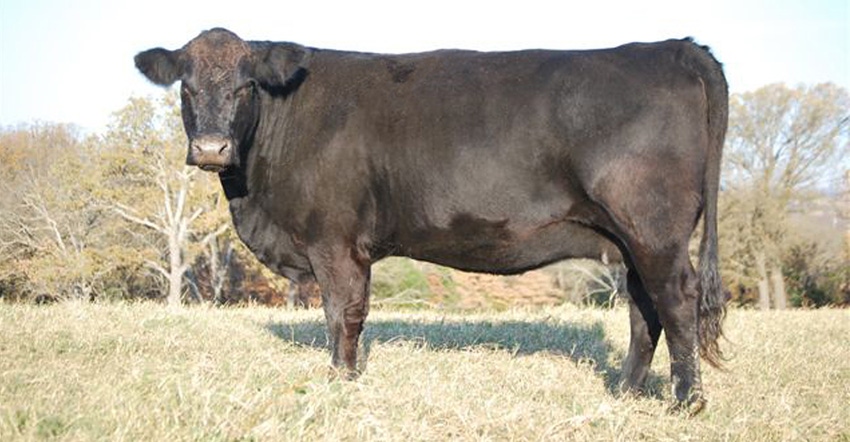Why a self-fed supplement is the easy choice during colder seasons
Here are some tips on how best to carry your livestock through the colder season ahead.
November 15, 2019

Sponsored Content
As the winter months are quickly approaching, it’s time to start thinking about your supplementation program to carry your livestock through the colder seasons. Here are 3 reasons why a self-fed protein supplement should be used as your supplementation program this fall and through the winter months:
1. Stored forages or dormant pastures need additional help.
For many parts of the country, summer hay making was especially tough this year, due to wet conditions across several areas and very hot, dry conditions in many southern states. As a result, harvested forage quality may be more variable than ideal. Additionally, a wet summer may mean more forage is still available out in pastures as we move through fall, but as those grasses mature and reach dormancy, quality is rapidly declining, with grasses becoming more fibrous and difficult to digest. Self-fed protein supplements work very well in both of these situations, whether you are feeding average to low-quality harvested forages or grazing dormant pastures.
When forage quality is poor, the first limiting nutrient will be protein. The bacteria in the rumen require protein to supply the ammonia needed for microbial growth. If protein is deficient in a ruminant diet, microbial activity, microbial protein synthesis and rate of digestion is limited, which reduces feed and energy intake. This can have negative effects on overall productivity through the loss of body condition, poor milk production, or improper fetal development. By providing a high-quality protein supplement — whether it is from natural protein or non-protein nitrogen sources, such as urea — the delivery of protein is made more readily available, while also providing carbohydrates in the form of simple sugars, both of which drive rumen forage digestion. Healthy rumen bacteria are able to ferment this forage fiber into rumen volatile fatty acids (VFAs), the cow’s energy source. To put it simply, even a small amount of supplemental protein will increase digestibility and available energy, which improves efficiency and can help stretch your forage.
2. Improve your grazing distribution.
Managing the grazing pattern or grazing distribution of cattle can be easily accomplished by providing a self-fed protein supplement. During the fall and winter months, cattle on pasture may take the easy route and graze near water sources or lowland riparian areas, which may lead to overgrazing. By strategically placing barrels in areas you want the cattle to go — such as the highland and rougher terrain areas — or to lure them into grazing more underutilized areas, barrels can be placed in those locations.
Extensive research collecting data through a GPS system on cattle has shown that a molasses based supplement helps cows to better utilize existing forage through spending more time within a 600-yard radius of the supplement. Grass utilization is also improved when cattle graze to and from visits to the barrel. The palatability of the molasses block not only lures cattle to graze specific areas, but also entices consumption. Regardless of being offered a harvested forage or grazing in pastures, it has been noted that a greater percentage of cows will consume a self-fed molasses based supplement each day when compared to a conventional dry mineral, which can result in a better mineral status across the herd.

3. More than just a protein supplement.
Can your supplement multi-task? Self-fed protein supplements not only provide protein, but also those vitamins and minerals crucial to a productive cow’s diet which aren’t found in forages. As we move into the third trimester of gestation for spring-calving herds, research in the area of fetal programming reminds us of the importance of cow nutrition during this time of calf development during gestation. It’s what sets the stage for a calf’s life after birth.
Supplementing cows with organic trace minerals during pregnancy has been shown to have a positive impact on calf health and growth performance. Specific self-fed protein supplements are available with 100% replacement of inorganic trace minerals with organic trace minerals, and other lines of products are available that contain a partial replacement available as well.
In addition to the forms of trace minerals, additional technology has been incorporated into self-fed supplements. Whether it is additives to assist with gut integrity, fiber digestion or the use of an ionophore, there are products available to meet your cattle’s needs around the clock, regardless of condition and which season we’re in.
CRYSTALYX® Brand Supplements are designed to fit your lifestyle. For more information on products that will fit your needs this fall and winter, check out www.crystalyx.com or visit with your local dealer.
You May Also Like



